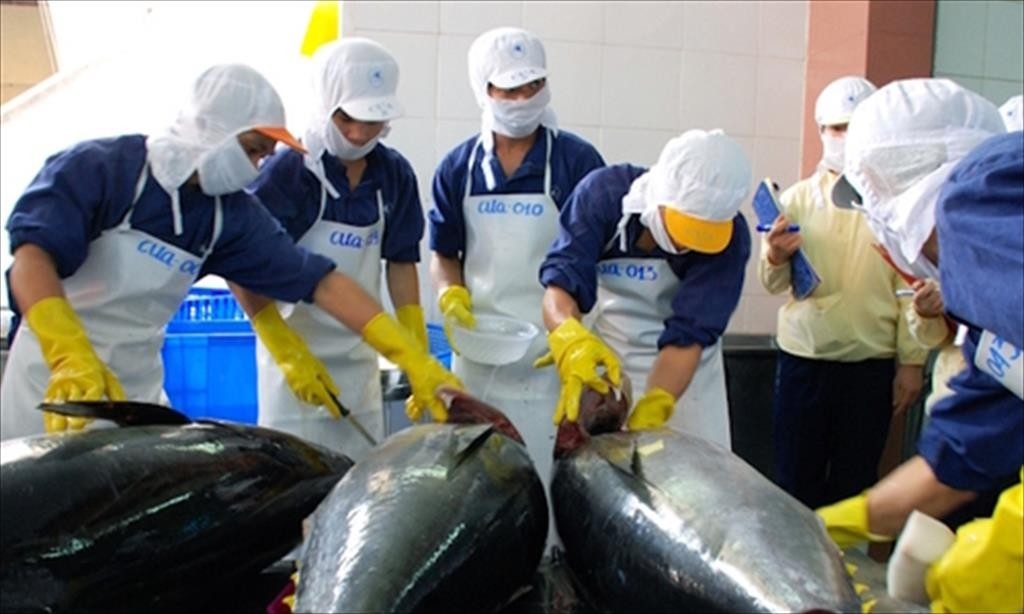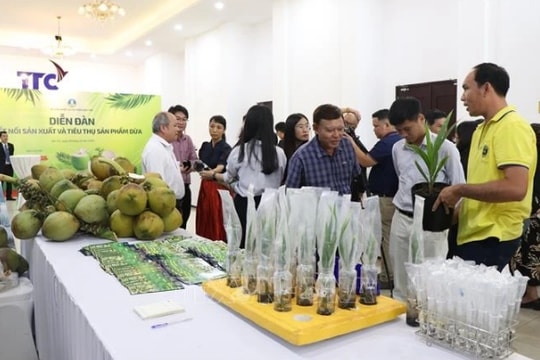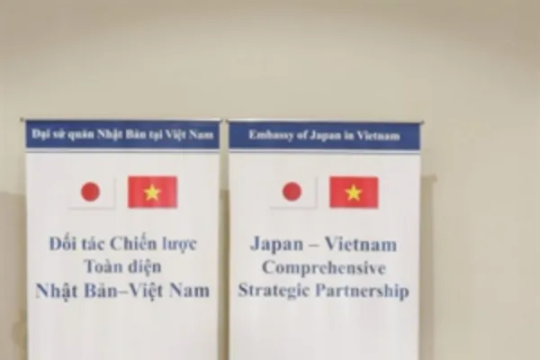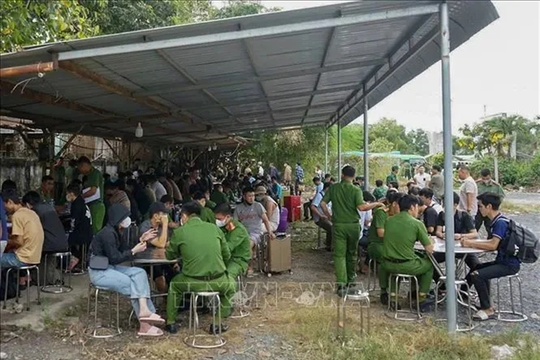According to the Vietnam Association of Seafood Exporters and Producers (VASEP) after three consecutive months of decline, Vietnam's tuna exports to the UK have increased again, with export value to the highly lucrative market soaring by 56% to US$742 million.
The first half of this year witnessed tuna export turnover to this market rake in US$3.6 million, down 5% over the same period from last year.
Frozen tuna meat/loins remain Vietnam's major export product to the UK market, accounting for 92%. Vietnam is currently the second largest non-EU supplier of frozen tuna meat to the UK market, after the Republic of Korea (RoK).
The VASEP also reported that tuna is sold in many types of products in the UK market such as raw, ready-to-cook, sushi, sauced, cake or breaded. Of which, canned and bagged tuna products are consumed the most. However, the consumption of this product group has been on a downward trend since last year.
It is worth noting that Vietnamese tuna products in the UK market are having to compete with similar products from Ecuador as the South American nation has signed a free trade agreement (FTA) with the UK. This is facilitating Ecuador increasing its exports to the UK.
However, according to the Import-Export Department, Vietnamese tuna is gaining advantages in the UK market thanks to tariff incentives from the UK-Vietnam Free Trade Agreement (UKVFTA). According to the commitment in the UKVFTA, in terms of tariffs, this agreement has a mechanism to continue the EU-Vietnam Free Trade Agreement (EVFTA), which means that import tariffs on fresh and frozen tuna products will be quickly eliminated.
Tariffs on frozen tuna or tuna fillets will be eliminated over a 3-year period from 18% to 0%. For processed tuna used for canned tuna - the base rate of 24% will be reduced over a 7-year schedule.
For canned and packaged tuna, the quota will be 11,500 tonnes per year duty-free. After that, the original tariff of 20.5% will be applied, which will be reduced by 3.5% each year.
The Import-Export Department stated that to enjoy preferential tax rates as committed in the UKVFTA, Vietnamese seafood products must prove their origin.
The provisions on Rules of Origin in the UKVFTA are similar to those of the EVFTA, with the origin criteria for raw and processed aquatic products in the UKVFTA being purely originating. This means that raw, semi-processed and processed aquatic products exported from Vietnam are considered to have origin under the UKVFTA when the aquatic materials used in the production process are purely originating from Vietnam (born or raised, caught and processed entirely in Vietnam), and are not allowed to be imported from a third country outside the agreement.
Therefore, to promote tuna products to the UK market, according to experts, Vietnamese enterprises need to increase the application of science and technology, develop modern production and processing systems, thereby optimizing the production process in a bid to improve the quality and added value of products, helping Vietnamese seafood gradually meet international standards and create competitive advantages.
In line with this, it is essential to diversify export products, increase deeply processed products, choose market segments and distribution channels suitable for products and scale of business operation, while looking into the tastes and characteristics of the market.
























